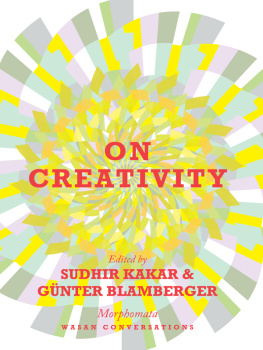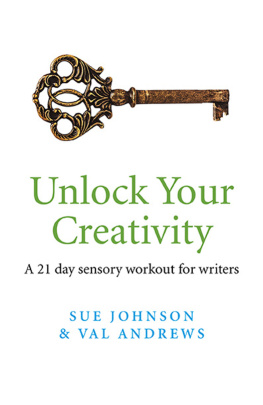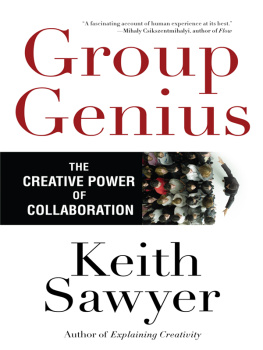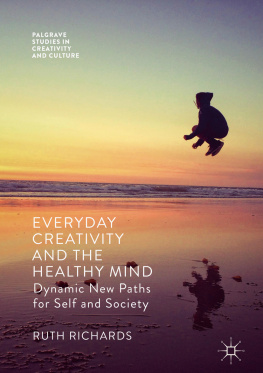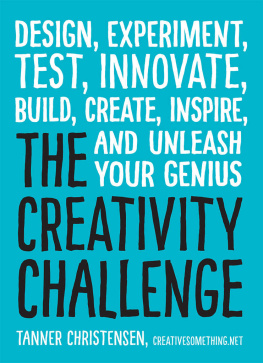Introduction
Sudhir Kakar and Gnter Blamberger
The concept of genius has undoubtedly been one of the most influential concepts in the European theory of the arts, dating in various forms from the eighteenth century. It is also intrinsically linked to the philosophy of the subject. In the twentieth century, psychological studies on creativity, which took the artistic genius as a role model for their inquiries into the personal origin of fundamental innovations in all domains, were still centred on the notion of an individual creator in science, art and technology. The Western theory of creativity as personal ingenuity was globally influential although it is obvious that it does not fit into traditional Eastern understanding and practices of creativity. Moreover, in the meantime, this model of creativity also fails to account for some of the current Western practices of creativity as a collaborative effort, or network creativity, in many fields of innovation.
An international conference was therefore held in Wasan Island, Canada, in July 2012, to find contemporary answers to the question of how newness enters the world. This volume, reflecting the proceedings of the conference, is in two parts. The essays of Sudhir Kakar, Gnter Blamberger and Weihua Niu have a cross-cultural perspective. They compare historical and actual concepts of creativity in the East and the West. The essays of Patrick Mahony, Margaret Boden and James Kaufman are from an interdisciplinary perspective. They demonstrate the successes and limits of the psychoanalytical and psychological approaches as master discourses of creativity studies in the twentieth century, and discuss the approach of cognitive biology as seemingly the most promising avenue for solving the mystery of the creative mind in the twenty-first century.
Creativity research in a cross-cultural perspective
Sudhir Kakars essay compares Western theories of creativity with those of Hindu tradition. The focus of Western theories has been the creative person. Psychoanalysis has continued this tradition by emphasizing the biographical roots of creativity, tracing its source to the creative persons emotional conflicts and highlighting the therapeutic function of creativity. There has recently been a shift from the psychological to the biological in that the special nature of the creative persons cognitive and perceptual processes is receiving greater attention. On the other hand, Indian foundational texts on creativity do not concentrate on the personality of the creative person which needs to be transcended for creativity to flower. Creativity arises from his or her participation in a transcendent-spiritual unconscious. Kakar then looks at an anthropological study of traditional painters and the views of Rabindranath Tagoreperhaps the greatest creative genius produced by India in the last two hundred yearsto discuss the contemporary relevance of the traditional Indian view of creativity.
Gnter Blamberger analyses the mythological, social and philosophical backgrounds of the Western idea of the autonomous genius who is allegedly capable of producing original compositions according to the Biblical myth of the divine creation out of nothing. In critical revisions of historical testimonies (Czanne, Drer, Kant, Sorescu, Brecht, Kleist, Shaffer, Guilford, etc.), Blamberger demonstrates the ultimate hopelessness of investigating the personal origin of creativity which is still the focus of psychological studies of creativity. He pleads for a paradigm shift by moving the analytical focus from the personal origin of creativity to the process of creativity. He argues that creativity is not an independent cognitive competence preceding all action, simply translating itself into practical activities or media. Creativity is experience, it is a knowledge to be generated out of practice, a knowledge that is dependent on the medium and the material of its expression, on social interaction and mainly on the occupational domain in which one becomes creative. Blamberger shows this by using, as example, film production as a process of shared agencies. In most workplaces today, a theory of creativity can no longer refer to an individual because the creative processes are based on a division of labour within collective and dynamic networks. But it is also obvious that cooperative processes of creation in film presumably function differently from those in industrial laboratories, management or sports. Workplace studies and theories of practice are necessary for discovering the different logics of creativity. Thus, creativity is both a trans-disciplinary and a cross-cultural problem. It is a paradox that the Confucian and the Taoist understandings of creativity as co- or contextual creativity seem to be more appropriate to current Western practices of creativity than the traditional Western approaches.
Weihua Nius essay proposes that there is a unique concept called Chinese creativity which is different from the Western notion of creativity. Chinese creativity stresses that creative products have a stronger impact on society than the individual who creates the product. Chinese society also historically places moral standards as important characteristics of creative individuals, and believes that ethical conduct is an inseparable part of ones creativity. There are also some variations among different sub-societies in contemporary Chinese societies, including Mainland China, Taiwan, Hong Kong, and other parts of the world. Weihua Niu believes that these features are associated with the philosophical roots of the Chinese notion of creativity and the interaction between the Western and the Eastern worlds.
Creativity in an interdisciplinary perspective
Patrick Mahony, psychoanalyst and literary scholar, draws up a balanced account of Sigmund Freuds creativity. His essay is in three parts: a positive roll call of Freuds known and lesser-known attributes and achievements which have contributed to the betterment of society; then, a disarming catalogue of his negative attitudes which would appear to undermine the possibility of any cultural contribution; and lastly, a focus on two sexually oriented mindsets which both informed Freuds creative dilemmas and facilitated his creativity.
Margaret Boden, a prominent expert in computer models of the mind, advances the argument that creativity is likely to remain a neuroscientific mystery for many years to come since, of the three types of creativitycombinational, exploratory and transformationalonly the first has been significantly illuminated by neuroscience. And even the combinational is not fully understood in neural terms. The other two are even more recalcitrant. This is due to difficulty in defining thinking styles in arts or science, and in identifying the various computational processes which are involved in using them. Without doing that, helpful neuroscientific questions simply cannot arise. One key problem to which Boden points is that hierarchical systemsincluding many creative stylescannot yet be effectively represented by (connectionist) computer models inspired by the neural networks in the brain. Another is the difficulty of explaining the recognition of relevance in computational/theoretical terms.

